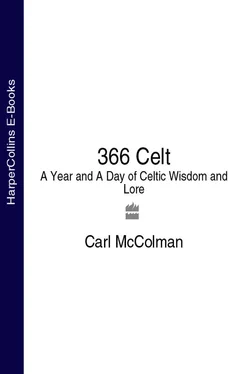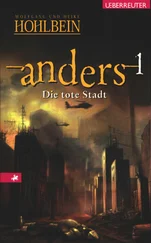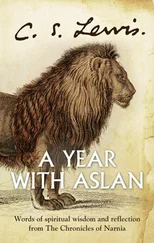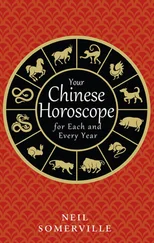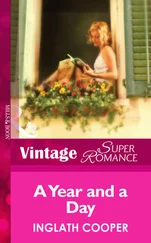9
THE PATH OF SOVEREIGNTY
The Irish language does not have a word for the coronation of a king; instead the ceremony by which a new king was installed was called the banais righe , or the wedding-feast of the king. Who was the king marrying? The goddess, of course: Sovereignty herself, in one of her various forms. Ancient annals describe this wedding-feast as involving two elements: the goddess (or a priestess assuming the role of goddess) offering a sacred drink to her new “husband”—perhaps mead, from which the goddess Meadbh takes her name; and then the consummation of the marriage itself, symbolizing a sacred union between the land and the people—land symbolized by the goddess, and people symbolized by their king. So here is a profound clue into the heart of Celtic wisdom: life is lived truly and bountifully out of a harmonious, marriage-like relationship between humanity and nature. Nature is not some inert resource for us to exploit as we wish, but rather is divine, and can be related to as a Divine Feminine: a goddess.
10
THE PATH OF SOVEREIGNTY
The Irish word for sovereignty is flaitheas. It is related to flaithiúil , a lovely word that means “generous.” To understand the Celtic concept of sovereignty, consider how generosity can be related to it. The goddess of Sovereignty is, in essence, a generous, abundant, and nurturing spirit. The hag by the well was perfectly willing to share of her water. All she asked in return was one loving kiss.
As most people understand it today, sovereignty is not so much a topic related to generosity, but rather has to do with dominion (lordship). The sovereign is the lord, the one who gets to make all the rules and tell everyone else what to do. But that is hardly a Celtic understanding of the concept. Sovereignty in the Celtic world is the spirit of authentic freedom, which extends not only to the political freedom that an independent state enjoys, but also the empowered ability to relate to others out of a profound inner-directed liberty. This includes, of course, the power to be giving (generous) as circumstances dictate. The goddess can only be giving because she is free. This is a point well worth considering. Perhaps we can only be free to the extent that we are generous.
11
THE PATH OF SOVEREIGNTY
The fact that sovereignty is related to generosity contributes to one of the most powerful themes of Celtic wisdom: the importance of hospitality as a social virtue. Hospitality is basically the generosity shown to strangers and guests in our midst. Mythology abounds with stories that suggest a king rules well when his court is filled with hospitality—that a visitor must eat till satisfied before even beginning to discuss whatever business brought him to the royal hall. By contrast, kings who do not practice hospitality are satirized, the land goes barren under their rule, and ultimately they are forced to abandon the throne. Sovereignty is not only related to generosity, but to a specific type of generosity: hospitality, through which any and all may benefit from the land’s abundance and the king’s largesse. From this we can get a clear sense that, to the ancient Celts, the goddess is more than just a kind of female version of the Almighty—she is a powerful presence who stands for the spirit of charity, generosity, and care for others, qualities that lead in turn to the blessings of abundance and prosperity from the land.
12
THE PATH OF SOVEREIGNTY
Why does the link between the goddess, the concept of sovereignty, and the concepts of generosity and hospitality matter to us today? After all, no society today (Celtic or otherwise) inaugurates its leaders by performing a symbolic sacred union with the goddess! But the importance of these concepts resides not so much in their political implications, as in their spiritual relevance to each of us as individual persons. After all, I may never be the leader of a nation, but I have “sovereignty” over my own life. As a follower of Celtic wisdom, I can see that my personal freedom is related to how I choose to relate to my environment—to the land on which I live. I can also see that I am only truly free if I can freely choose to be generous and practice the virtue of hospitality. In other words: in today’s world, each one of us can be called to the role of “king”—to enter into intimate relations with the goddess of the land, and find in her spirit of Sovereignty the power to foster a life that is spiritually meaningful and rewarding; in other words, a life of generosity and hospitality.
If there’s one word firmly associated with Celtic mysticism, it is “druid.” And yet probably no other concept connected with the spirituality of the Celts is less understood, or more frequently consigned to the mists of fantasy. We have only a handful of written records from ancient times (when the original druids were still active in the Celtic lands, prior to the coming of Christianity), and the druids themselves wrote none of these. Instead, Greek and Roman authors like Julius Caesar and Pliny have given us what little information we have about the earliest druids—and when you consider how some of these classical authors were biased against the Celts, it’s easy to see how this source material is not only scanty, but unreliable.
We’re not even entirely sure what the word druid means, although the popular notion that it has to do with “oak wisdom” is as good a theory as any. Seen this way, a druid is a natural philosopher, one who discerns the innate wisdom of the earth and interprets it for the good of the community. So when modern folks dismiss the druids as “tree huggers,” they’re probably not too far from the truth. But a druid would reply in an ironic tone of voice, “You say that like it’s a bad thing?”
The ancient writers who comment on the druids say that they were the spiritual and intellectual leaders of the Celtic world, and that their function in society included not only presiding at religious ceremonies, but also serving as scientists, philosophers, counselors, mediators, and seers. In other words, they were not just otherworldly dreamers, but collectively served as the “think tank” of the ancient Celtic world. In the modern world, it’s easy to forget the intellectual/scientific dimension of the druids, but in ancient times such mental skill would have been an essential part of a druid’s life. The druids were not driven by intuition or psychic hunches (attending to those kinds of stimuli would have been the job of the seer, another specific function in Celtic society), but by knowledge, reason, and wisdom. That this mental agility was embedded in spiritual activity would not have been considered odd, for throughout the ancient world, science and religion had not yet undergone the divorce that would separate them at the dawn of the modern world. In the world of the druids, true wisdom meant being knowledgable about inner matters and external realities in a holistic and integrated way.
Much of what the classical writers had to say about the druids smacks of propaganda that would have been useful to Roman generals seeking support for their military excursions in the Celtic world. After all, if the druids are really so barbaric as to perform massive human sacrifices where dozens of hapless victims are burned alive, wouldn’t it be a service to civilization to put them out of business?
Truth be told, it does appear that druids performed human sacrifice, although evidence is not widespread and so such practices may have been considered an extreme measure, at times of severe famine or imminent invasion. And it seems a bit disingenuous that representatives of a society that entertained itself with gladiators would dismiss the druids as barbaric!
Читать дальше
